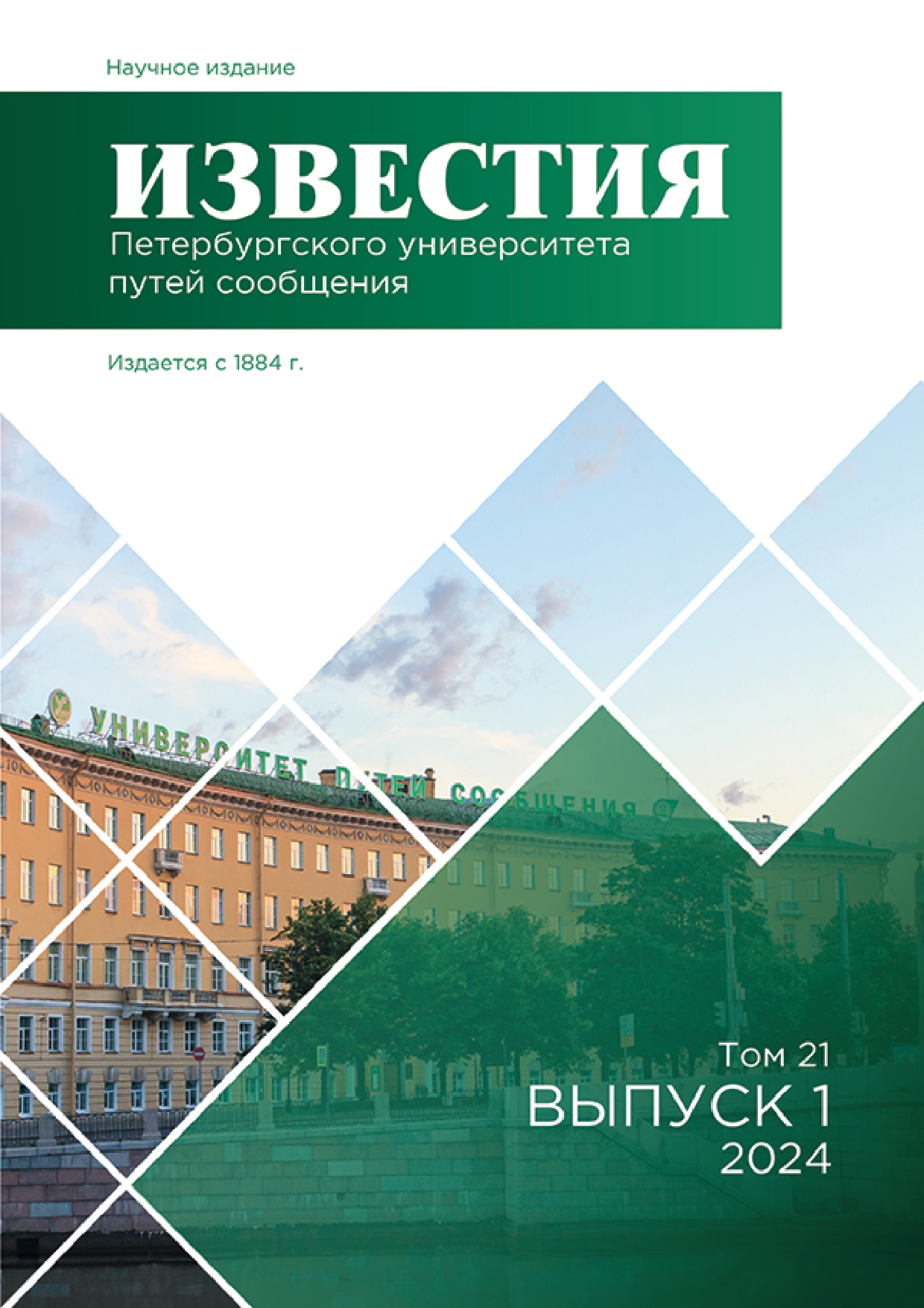Russian Federation
Russian Federation
Russian Federation
UDC 656.025.4
Purpose: to consider the main problems of transportation of temperature-sensitive cargoes in refrigerated containers (refcontainers). To show the possibilities of transportation optimization through the introduction of alternative energy sources. Methods: comparison of technical and economic indicators of diesel, hydrogen and hydrogen plants is carried out. The exergetic method of estimating the effect of replacing diesel fuel with LNG was applied. Results: the article defines the peculiarities of cargo transportation in containers with built-in refrigeration units — autonomous refcontainers. Classification of existing energy units for power supply of refcontainers is given. The design of an autonomous installation for power supply of refcontainers is described. Environmentally safe alternatives for providing autonomous power supply of refrigerating units of refrigeration containers are proposed. The advantages of autonomous power supply based on high-temperature fuel cells are presented. An autonomous power unit with liquefied natural gas (LNG) as fuel is described. The feasibility of utilization of cold from LNG regasification is analyzed in order to ensure the stability of refcontainer operation. The estimation of the expected effect from the use of alternative fuels for autonomous power supply is made. Practical significance: the obtained results can be used for modernization of low-capacity power plants used in refrigerated and other types of transport.
autonomous power units, high-temperature fuel cells, liquefied natural gas, refrigerated transport, autonomous refcontainers
1. Generator (FAS-18-1/VR) Nominal'naya moschnost', kVt 18 Rashod gaza (plotnost' 0,42 kg/m3 ), l/ch 11,1 Massa generatora, kg 530
2. Kriobak (LNG530L, STFK «KamAZ») Ob'em, l 530 Cnaryazhennaya massa, kg ~ 300 Rabochee davlenie, MPa 1,6
3. Gazovyy mul'tiblok Rabochee davlenie na vhode, mPa do 40 Davlenie na vyhode, mPa do 3,5 Rabochaya temperatura, °C 285 Tablica 4. Tehniko-ekonomicheskoe sravnenie DT i SPG Harakteristika DT «Evro-5» SPG Udel'naya teplota sgoraniya, kDzh/kg 42 700 48 500 Dolya soderzhaniya ugleroda 0,875 0,75 Rashod, l/ch 3,5 11,1 Stoimost' topliva, rub./l 55,0 14,7 Raschet zatrat na 1 chas raboty, rub./ch 192,5 163,2 Holodoproizvoditel'nost', kDzh/l – ot 94,0 do 373,5 Vybrosy SO2 708 g/kVt 696 g/kVt235
4. Zhuzev A., Tertyshnikov M. V. Toplivnye elementy: sostoyanie i perspektivy // Energetika Tyumenskogo regiona. 2002. № 3. S. 170.
5. Pandya B., El-Kharouf A., Venkataraman V., et al. Comparative study of solid oxide fuel cell coupled absorption refrigeration system for green and sustainable refrigerated transportation // Applied Thermal Engineering. 2020. Vol. 179. P. 115597.
6. Dinamika promyshlennogo proizvodstva v 2022 godu [Elektronnyy resurs]. URL: https://rosstat.gov.ru/folder/313/document/196621 (data obrascheniya: 27.09.2023).
7. Vladimir Putin: «Rasschityvaem k 2035 godu vyyti na uroven' proizvodstva SPG v 120–140 millionov tonn v god» [Elektronnyy resurs]. URL: https://minenergo.gov.ru/node/15959 (data obrascheniya: 27.09.2023).
8. Kolin S. A. K voprosu ocenki ekonomicheskih izderzhek ot zagryazneniya vozduha gorodskim transportom (na primere Sankt-Peterburga) / S. A. Kolin, S. E. Kondratenko, N. A. Bortnikov // Gazovaya promyshlennost'. 2021. № 6. S. 98–104.
9. Kiselev I. G., Komissarov S. B., Monastyrskiy D. Ya. O celesoobraznosti ispol'zovaniya szhizhennogo prirodnogo gaza na refrizheratornyh konteynerah s navesnymi dizel'-generatorami // Byulleten' rezul'tatov nauchnyh issledovaniy. 2021. № 4. S. 104–113.
10. Gerasimov V. E., Kuz’menko I. F., Perdel’skii V. A., et al. Introduction of technologies and equipment for production, storage, transportation, and use of LNG // Chemical and petroleum engineering. 2004. T. 40. № 1–2. P. 31–35.
11. Dorosz P., Wojcieszak P., Malecha Z. Exergetic analysis, optimization and comparison of LNG cold exergy recovery systems for transportation / P. Dorosz, P. Wojcieszak, Z. Malecha // Entropy. 2018. T. 20. № 1. S. 59.
12. Tan H., Li Y., Tuo H., et al. Experimental study on liquid/solid phase change for cold energy storage of Liquefied Natural Gas (LNG) refrigerated vehicle // Energy. 2010. T. 35. № 5. P. 1927–1935.
13. Wang F., Li M., Zhang Y., et al. Study on roof-mounted radiant cooling system for LNG-fueled refrigerated vehicles // International Journal of LowCarbon Technologies. 2021. T. 16. № 2. P. 268–274









